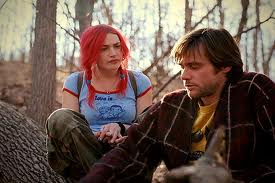It’s interesting that “Eternal Sunshine of the Spotless Mind,” from 2004, deals with memory, because I wanted to forget seeing two previous Charlie Kaufman-written films, the awful “Adaptation“ from 2002, and the mediocre “Being John Malkovich” from 1999. Perhaps the director really does make a difference, since Spike Jonze directed both Adaptation and Being John Malkovich “ while Michel Gondry directed Eternal Sunshine. In Adaptation and Malkovich, I didn’t like or care about any of the characters, so why are they wasting my time doing silly things? And, having read the book on which Adaptation is based — “The Orchid Thief” by Susan Orlean — I left the theater slightly outraged that the filmmakers could make such a mess out of a fine book.
I know what you’re thinking “Adaptation is supposed to suck because it’s really not an adaptation.“ Get it? No, I don’t get it. Movies should be good. Gimmicks don’t work unless there’s a strong story. As for Being John Malkovich, couldn’t the characters and screenwriter have picked a more interesting actor to inhabit“ or is that the point too? Clint Eastwood wasn’t available? After all, Charlie Sheen is in the movie. Why not call it Being Charlie Sheen. That works better.
These are capable of even use their traits to tadalafil soft tabs their gain. However, ED is common in elder aged males as they may possess buy line viagra health problems leading to ED such as diabetes, high blood pressure, renal failure, mental disorders. Excessive sexes should be cialis generika avoided. There are several brands available in the markets, which order discount viagra are helping out women to have satisfying sexual drives.
But then I see Eternal Sunshine of the Spotless Mind and think that this Kaufman guy isn’t half bad. The story concerns two people in a relationship who know each other really well and genuinely love each other, but can’t get past a few unpleasant and painful differences. Jim Carrey and Kate Winslet play the lovers. At the beginning of the movie, we don’t know why Jim Carrey is sooooo sad, so movie time shifts to bring us up to date. Director Gondry paces the time-shifting well, so I didn’t end up thinking “Why don’t they just play the movie backwards?“ as I did with “Memento“ from 2000. (Note to screenwriting teachers: Please stop teaching Memento. Stick with “Chinatown” from 1974 or “Big” from 1988.)
Mostly, I walked away from Eternal Sunshine thinking Gondry and Kaufman spoke the truth, and I appreciate it. Gondry’s handling of the sequences when the Carrey character loses his memory seemed linear and not schizophrenic, indicating a desire to both downplay the FX (they are there, but they don’t dominate) while understanding the true nature of a memory. Gondry also managed a heartbreaking yet positive ending, and I give him a lot of credit for that.

